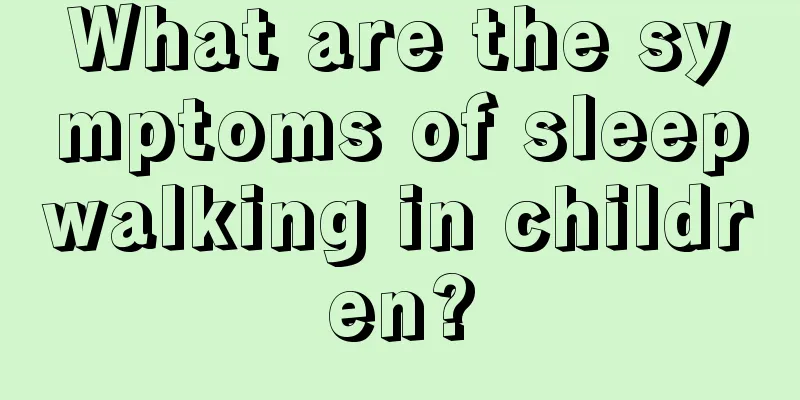The dangers of hip dysplasia in babies

|
It is said that babies are the bridge of emotional communication between couples. Every baby is important to the family. Each of us hopes that our children can grow up healthily, but there are always some unsatisfactory things in life. Baby hip dysplasia is a common problem. It seriously affects the baby's growth and development. When such a problem occurs, we must take the baby to the hospital for treatment in time. Let’s learn about the dangers of baby hip dysplasia? Is hip dysplasia dangerous for babies? There are many dangers of hip dysplasia: 1. Baby's hip dysplasia This disease has a slow onset and a long course, and is often bilaterally dysplastic, while the femoral head is mostly normal. The main manifestation is acetabulum dysplasia, characterized by a shallow acetabulum, a large inclination, insufficient accommodation for the femoral head, and even subluxation with hip valgus. The twisting and traction of surrounding blood vessels aggravate ischemia of the femoral head and even necrosis. 2. Congenital dislocation of the hip In the neonatal or infant period, since the child has not yet walked, the symptoms are not obvious. If a lesion is suspected, a corresponding physical examination is required, such as limited hip abduction, a positive frog test, and a positive Ortolani sign for complete dislocation, which can confirm the diagnosis. In infancy, affected children start walking later than normal children. In cases of unilateral dislocation, the bilateral breech folds are asymmetrical, the affected limbs are shortened, the buttocks become wider, and they walk with a stagger or duck walk. The deformed gait becomes more serious during childhood. 3. Congenital hip varus Congenital hip vara is a developmental deformity that can be detected a few months after birth and is more common in females than in males. After the child starts walking, he or she develops a limping and swaying gait, similar to a duck's walk, which is mostly caused by the weakening of the gluteal muscles due to the deformity. The patient's neck-shaft angle becomes smaller, the femoral neck becomes shorter, and a femoral neck pseudoarthrosis may form at the lower edge of the femoral head. Gradually, hip joint instability occurs, eventually leading to femoral head necrosis. After understanding the dangers of hip dysplasia in babies, we should pay more attention to it. After the baby is one month old, we should follow the instructions of the parents and go to the hospital for a physical examination on time. If the baby has hip dysplasia, it must be treated in time to avoid serious impact on the baby's future growth and development. |
<<: Methods and effects of acupuncture points for children
>>: What to do if your newborn has blood in his urine
Recommend
Comprehensive care for premature infants at 36 weeks
Premature babies at 36 weeks are a common phenome...
What is missing when children are active?
As children grow up, they will be full of curiosi...
What are the symptoms of chlamydia infection in children
Children will always have many common diseases in...
Children's dry cough without phlegm and itchy throat remedies
Children have relatively weak physical constituti...
What vegetables should children eat to strengthen their spleen and stomach?
Having stomach problems cannot be said to be a se...
Why doesn't a newborn baby cry?
I believe that many new parents, although they ar...
What should babies eat if they are prone to getting angry?
If your baby is prone to getting angry, he should...
Reasons and solutions for 16-month-old babies not liking to eat
I have a sixteen-month-old baby at home, but what...
How to train a two-year-old baby to chew
Babies can learn some new skills at each stage, s...
Why does my child's scalp itch?
Perhaps most people have this experience: there i...
Reasons for watery stools in newborns
The birth of every newborn brings a surprise to t...
What to do if your child has a high fever and convulsions
Because children's body resistance is relativ...
What are the main symptoms of rheumatic fever in children?
Rheumatic fever is a relatively common disease in...
What are the symptoms of mycoplasma infection in children
Mycoplasma is extremely harmful to human health, ...
What to do if your baby's lips are broken
Children are lively and active, and they have no ...









